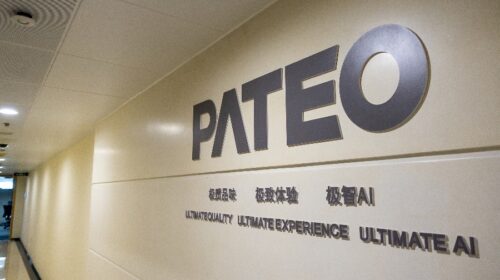Connect bonus: Bilibili’s surge highlights benefit of HK-China link program

The popular video and gaming company’s shares rose 22% in their first week of inclusion in a program making the stock available to mainland China-based investors
Key Takeaways:
- Inclusion in an expanded program making Hong Kong-listed stocks available to mainland Chinese investors helped to sharply boost Bilibili’s shares in its first week in the program
- Shares of international firms now eligible for the Connect program posted more muted gains in their first week of trading due to lack of familiarity among Chinese investors
By Chen Ruzhen
It’s a well-known fact that Mainland China-based stock buyers often value the same companies higher than global investors. Now a growing number of companies are cashing in on that reality using a program that makes their Hong Kong-listed shares available to mainland buyers.
Popular video site Bilibili Inc. (9626.HK) became the latest to jump on that bandwagon by getting its shares included in the China-Hong Kong Stock Connect program a week ago, and wasn’t disappointed. Its Hong Kong-listed stock surged 22% in the first week after the inclusion, far outperforming four other newly-added international companies that joined at the same time.
That suggests that while the program can connect stocks with a vast new group of potential buyers, the biggest beneficiaries from a new phase of Connect expansion will be local Chinese companies that join the program.
The Hong Kong stock exchange operator has kicked off a slew of fresh initiatives to expand its link with mainland Chinese bourses in Shanghai and Shenzhen via the Stock Connect, seeking to boost its appeal as a global listing destination, especially for the growing number of Chinese companies that want to list abroad. Most of those Chinese companies would have typically gone to New York in the past, especially tech firms. But many are rethinking that path amid rising Sino-U.S. tensions that threaten to de-couple their capital markets.
Seeking to seize on that growing movement, Hong Kong is rolling out the red carpet by taking a number of steps, including its expansion of the Connect program, to court companies like Bilibili. The latest expansion of the program that dates back to 2014 allows more types of companies to apply to participate in Stock Connect, including international companies that trade in Hong Kong.
Bilibili became eligible to start trading in Connect on March 13. The Nasdaq-listed company made a second listing in Hong Kong in 2021, and last year upgraded the status of that listing to “dual-primary” from “secondary” to make its shares eligible for trading in Connect.
Bilibili’s 22% share surge in the week since its inclusion was the stock’s best weekly gain in three months, and far outperformed a meager 1% rise for the benchmark Hang Seng Index. The company’s New York-listed stock surged by a similar amount over that period, since shares of such dual-listed companies tend to move in sync, meaning U.S.-based investors can also benefit from the Connect program.
New mainland investors piling into the stock were a major factor behind the jump. They purchased 6.75 million Bilibili shares – worth roughly HK$1.2 billion ($153 million) – during the week, accounting for 1.6% of the firm’s market value, exchange data shows.
March 13 also saw four non-Chinese Hong Kong-listed companies – L’Occitane International (0973.HK), Samsonite International (1919.HK), Yancoal Australia (3668.HK) and NagaCorp (3918.HK) – added to Stock Connect, as shares for such Hong Kong-listed international companies became available to mainland Chinese retail investors for the first time.
Potential gamechanger?
While the Hong Kong Stock Exchange hailed the breakthrough as “a potential gamechanger,” buying of the four international companies by mainland investors paled against Bilibili.
French cosmetics maker L’Occitane gained 11% during its first week of Connect inclusion, as mainland investors bought 678,300 shares, equivalent to just 0.04% of its market cap. Samsonite, a maker of travel bags, rose 11%, as mainland investors purchased 287,400 shares, equal to an even smaller 0.01% of the company’s market cap. Coal miner Yancoal Australia actually slumped 15% last week, while hotel operator NagaCorp dipped 0.5%.
The muted response from Chinese investors reflects challenges the Hong Kong exchange will face in using Connect’s expansion to attract more international companies looking to tap mainland Chinese investors.
In all fairness, Chinese retail investors will require time to get familiar with global firms, which often have better corporate governance and diversified revenue streams than their Chinese peers. But the huge bounce for Bilibili, compared with lackluster Connect debuts for the international names, shows that Chinese firms are likely to benefit from the expansion more quickly.
Like Bilibili, other Hong Kong stocks with “secondary” listing status are likely to upgrade to “dual primary” status to become eligible for the Stock Connect program.
Chinese tech giant Alibaba (BABA.US; 9988.HK) and Yum China (YUMC.US; 9987.HK), operator of KFC and Pizza Hut restaurants in China, have already applied for such upgrades, meaning their stocks could get a boost when that’s complete and they are included in the program. That pair are arguably two of the biggest Chinese corporate names that are currently inaccessible to most mainland-based investors.
Goldman Sachs estimates such mainland-based investors offer close to $30 billion of potential net buying for a group of 16 Chinese companies that could become eligible for Connect if they upgrade their current “secondary” listing status to “dual primary.” Those include ZTO (ZTO.US 2057.HK), Baozun (BZUN.US; 9991.HK), H World Group (HTHT.US; 1179.HK) and Trip.com (TCOM.US; 9961.HK).
Top beneficiaries would include Alibaba, which could draw $15.6 billion, NetEase (NTES.US: 9999.HK), which will potentially attract $2.2 billion, and JD.com (JD.US: 9618.HK), which could see $6.6 billion worth of inflows from mainland investors, Goldman estimates.
Many U.S.-listed Chinese companies rushed to launch second Hong Kong listings over the past few years due to concerns about an auditing spat between Beijing and Washington that had threatened to delist Chinese companies. While that spat was resolved through an auditing deal reached last year, greatly reducing the delisting risk, the greater threat of a decoupling of capital markets remains as Sino-U.S. tensions linger.
In another major development for the Connect story, the Hong Kong exchange recently allowed exchange-traded funds (ETFs) to be included in Stock Connect.
While the fresh reform measures will improve liquidity by hugely expanding the number of investors who can buy shares of Hong Kong-listed companies, the ultimate determiner of any individual company’s price performance is still its fundamentals, analysts caution.
Despite last week’s surge, Bilibili’s Hong Kong-listed shares are still down more than 80% from their July 2021 peak, and the stock is still struggling as the company contends with large losses despite its big popularity in China. A number of elements contributed to the stock’s tumble – including geopolitical tensions and broader global routs in tech shares.
But Bilibili’s own lackluster performance is also a factor. The company posted a net loss of 1.5 billion yuan ($218 million) in the fourth quarter, and gave lower-than-expected sales guidance for 2023.
First Shanghai Securities expects the red ink to keep flowing, forecasting Bilibili will post a 4.7 billion yuan net loss in 2023 and won’t turn profitable in the next two years. It said Bilibili’s priority should be to boost efficiency and slash costs. That’s a job that only the company can handle internally, and won’t be aided by any amount of mainland money flowing into its shares under the Connect program.
To subscribe to Bamboo Works weekly free newsletter, click here






